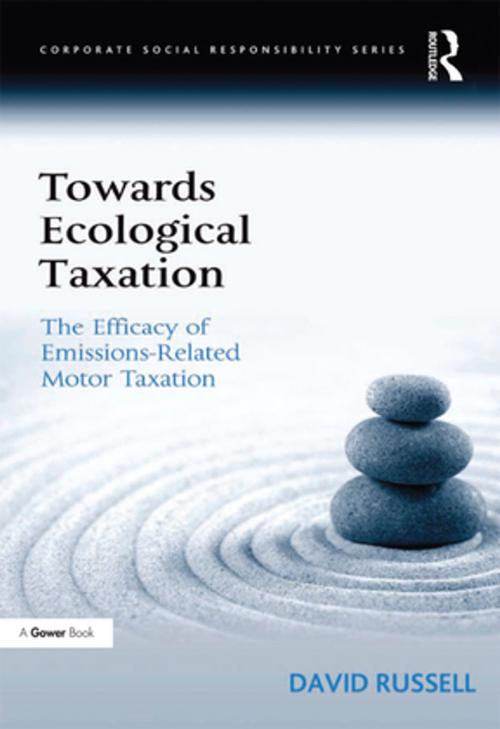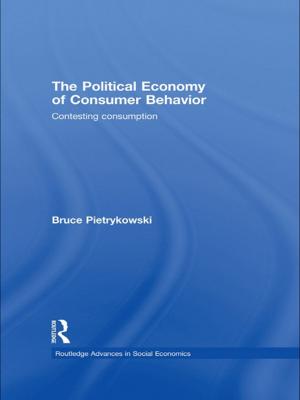Towards Ecological Taxation
The Efficacy of Emissions-Related Motor Taxation
Business & Finance, Economics| Author: | David Russell | ISBN: | 9781317009030 |
| Publisher: | Taylor and Francis | Publication: | February 24, 2016 |
| Imprint: | Routledge | Language: | English |
| Author: | David Russell |
| ISBN: | 9781317009030 |
| Publisher: | Taylor and Francis |
| Publication: | February 24, 2016 |
| Imprint: | Routledge |
| Language: | English |
Governments around the world are struggling to meet their commitments to achieve targets relating to reductions in greenhouse gases. Many writers advocating ways to achieve these targets offer radical but often impractical approaches that do not offer a way forward within the existing economic model. In contrast, Towards Ecological Taxation is a pragmatic consideration of realistic possibilities by an author from the world of accounting. Based on his research into the implications of changes in the UK motor taxation regime for company cars, David Russell considers the broader efficacy of taxation policy as a mechanism for reducing demand for fossil fuels and encouraging a shift towards carbon-neutral energy production. He incorporates the findings of a number of studies into his analysis, along with a wider consideration of tax regimes. Dr Russell suggests a way forward that will attract the interest of researchers, policy makers and decision makers wanting a better understanding of how taxation could be used innovatively, but within the existing economic status quo, to deliver specific and measurable reductions in CO2. Such a distinctive approach makes this book a valuable addition to the literature on environmental issues and the always thought provoking titles in the Corporate Social Responsibility Series.
Governments around the world are struggling to meet their commitments to achieve targets relating to reductions in greenhouse gases. Many writers advocating ways to achieve these targets offer radical but often impractical approaches that do not offer a way forward within the existing economic model. In contrast, Towards Ecological Taxation is a pragmatic consideration of realistic possibilities by an author from the world of accounting. Based on his research into the implications of changes in the UK motor taxation regime for company cars, David Russell considers the broader efficacy of taxation policy as a mechanism for reducing demand for fossil fuels and encouraging a shift towards carbon-neutral energy production. He incorporates the findings of a number of studies into his analysis, along with a wider consideration of tax regimes. Dr Russell suggests a way forward that will attract the interest of researchers, policy makers and decision makers wanting a better understanding of how taxation could be used innovatively, but within the existing economic status quo, to deliver specific and measurable reductions in CO2. Such a distinctive approach makes this book a valuable addition to the literature on environmental issues and the always thought provoking titles in the Corporate Social Responsibility Series.















